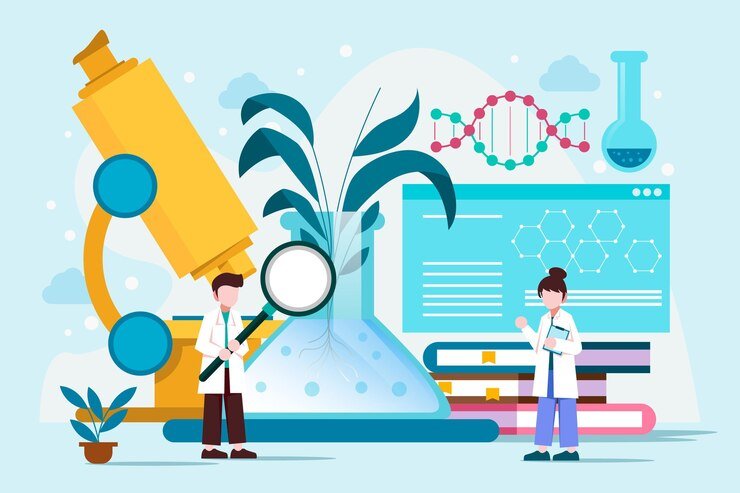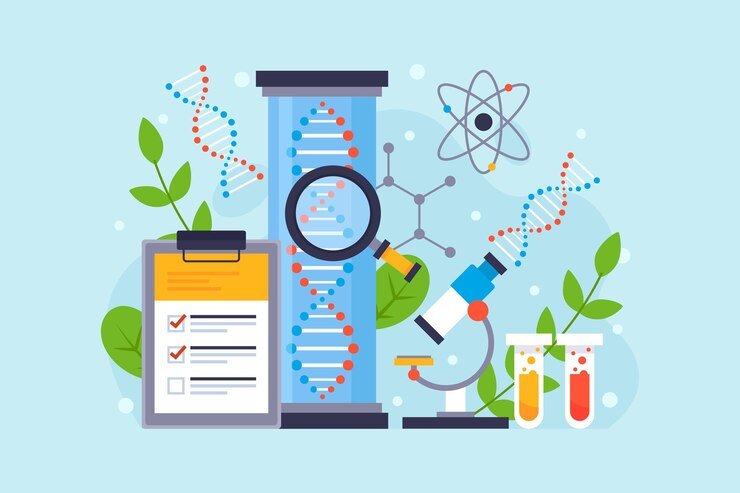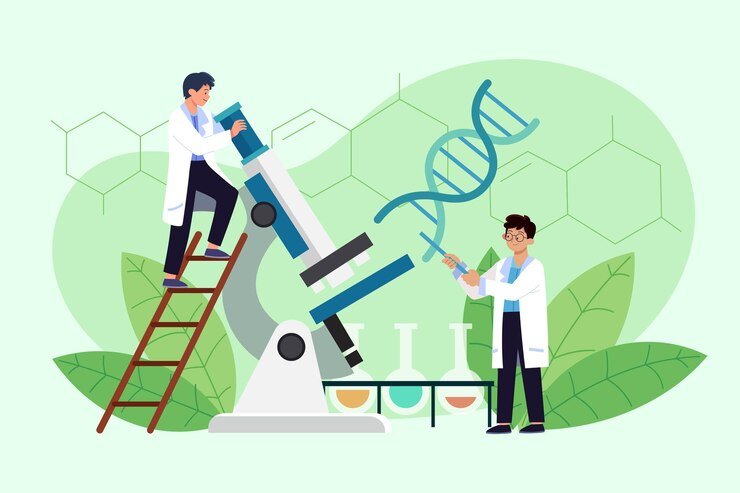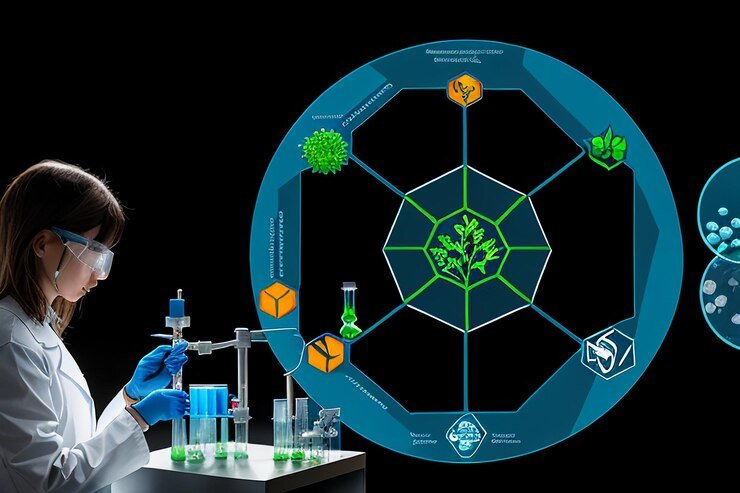Biocentrism Debunked: Everything To Know About
Biocentrism holds that biology, not physics, is the underlying science of the cosmos. It implies that life and consciousness are the origin of the cosmos, and matter is secondary. Some scientists and philosophers say biocentrism has been discredited after years of discussion.
Is Biocentrism Debunked?

Biocentrism may be a fascinating view of the cosmos, but scientists don’t believe it. Empirical data and testable predictions need to be improved in the theory. Further undermining its believability is its faulty physics comprehension.
The Concept Of Biocentrism and Death
This hypothesis, meaning “life center” in Greek, is comprehensive. This radical theory might affect physics, biology, consciousness, the brain, and AI. Imagine a blade of grass. Though your eyes, your brain says green. What if a neurologist could reconnoitre the brain region where the notion registers and make it red or yellow? Lanza says our brain interprets all reality as sensory input. The reality we see is created by awareness. Physical space-time differs from how we experience it in real life. Science believes in space-time continuity. Lanza calls them “simply tools of our mind.” He believed death “cannot exist in any real sense.”
Newtonian physics states that energy doesn’t generate or destroy; it changes form. Even after death, brain energy must change. Meanwhile, our senses indicate their end. This energy goes where? In a universe without end, could death exist? If not, is immortality inside or outside space-time? Dr. Lanza is no new guru. He is Astellas Institute for Regenerative Medicine’s Chief Scientific Officer and a biotech Zion. He studies stem cells for illness treatment. Before this, he studied embryonic stem cells and animal and human cloning. Lanza is an adjunct professor at Wake Forest University School of Medicine. Quantum particles can be in several states at once.
What Is Biological Centrism Theory?

This century is considered the biological century, contrasting with the physics-focused past. Researchers study life and its influences. Biocentrism emerged from attempts to explain the cosmos biologically. Research on universal characteristics integrating physics and biology led to biocentrism. It discusses the two realms together.
Biocentrism comes from the Greek words’ bios,’ meaning life, and ‘kentron,’ meaning center. Biocentrism holds that the mind shapes the cosmos. After millennia of wondering how the universe formed, scientists have yet to make meaningful headway save for the Big Bang. However, experts believe the Big Bang does not explain life. It was merely one of many events that created the planet. Biocentrism is nature-based, not human- or universe-based. It believes that nature is the foundation of the cosmos and that all species are equal, putting people in the background.
Is Biocentrism Credible
Does Robert Lanza’s biocentrism hold water? Not all physicists agree. What you need to know. Time and space are tricky notions, especially if we consider them too much. One scientist believes our consciousness generates the cosmos. Biocentrism holds that our thoughts generate time and space. Many physicists disagree. Read on to discover why some scientists dispute biocentrism.
Is Biocentrism Scientific?

Biocentrism relies on quantum physics. Supporters cite the observer effect and the theory that awareness affects subatomic particles. Many scientists believe these rules do not apply to macroscopic phenomena or the cosmos. Biocentrism is more prevalent in environmental issues. The interconnectivity of all life fits ecological ideas. Biocentric views of the cosmos can increase appreciation for biodiversity and environmental equilibrium.
The dispute over whether biocentrism is philosophical or scientific shows its complexity. There have been attempts to connect its philosophical foundations with scientific paradigms. Biocentrism holds that awareness shapes reality. Philosophers debate consciousness’s nature, but some academics are studying its brain correlates and possible linkages to the cosmos. Biocentrism needs empirical proof that life affects the cosmos to be accepted as a scientific hypothesis. Interdisciplinary study combining physics, biology, and philosophy may be needed. Biocentrism has expanded our understanding of life and the universe, regardless of scientific approval. It makes us question our comprehension and reality.
Understanding The Criticism Of Biocentrism

Despite increased support for ethical, environmental solutions, biocentrism has been criticized.
The following biocentrism criticisms are common:
- Required: Anthropocentrism A major objection to biocentrism is putting all living creatures at the center of ethical considerations. Criticism says humans are anthropocentric, which isn’t necessarily negative. They believe human interests and needs should precede non-human ones, especially in conflict situations.
- Uneven treatment of living things: Biocentrism is also critiqued for not providing a uniform paradigm for addressing different organisms. Biocentrism’s detractors argue that all living things are equal, regardless of intelligence, consciousness, pain, or pleasure. They argue that this method violates our morals, which tell us to treat animals differently from plants and other non-sentient beings.
- Idealistic and unlikely: Some say a biocentric view of ethics is idealistic and unrealistic. They say biocentrism overlooks life’s realities, such as the need to use resources, and that not all living creatures can get along. Critics say biocentrism ignores that humans sometimes must put their needs above those of non-humans.
- People’s wishes and needs are ignored:- Detractors of biocentrism say it ignores human needs and prioritizes non-human species. They argue that biocentrism ignores the potential effects of environmental laws and regulations on human livelihoods and that people sometimes have to choose between their wants and interests and the welfare of non-human creatures.
- Biocentrism lacks empirical support: Finally, some critics argue that biocentrism is unreliable and unsupported by evidence. They argue that biocentrism is based on subjective values and beliefs rather than objective facts and evidence. Critics say this makes it difficult to verify biocentric claims or create workable policies based on biomedical ideas.
Conclusion
Biocentrism emphasizes the worth and rights of all living things. It has been praised as an ethical, environmental solution but has also been criticized. Biocentrism is criticized for being irrational, contradictory, and unresponsive to human needs. Biocentrism advocates say it protects ecosystems and biodiversity and takes a more moral and ethical approach to environmental issues.

















